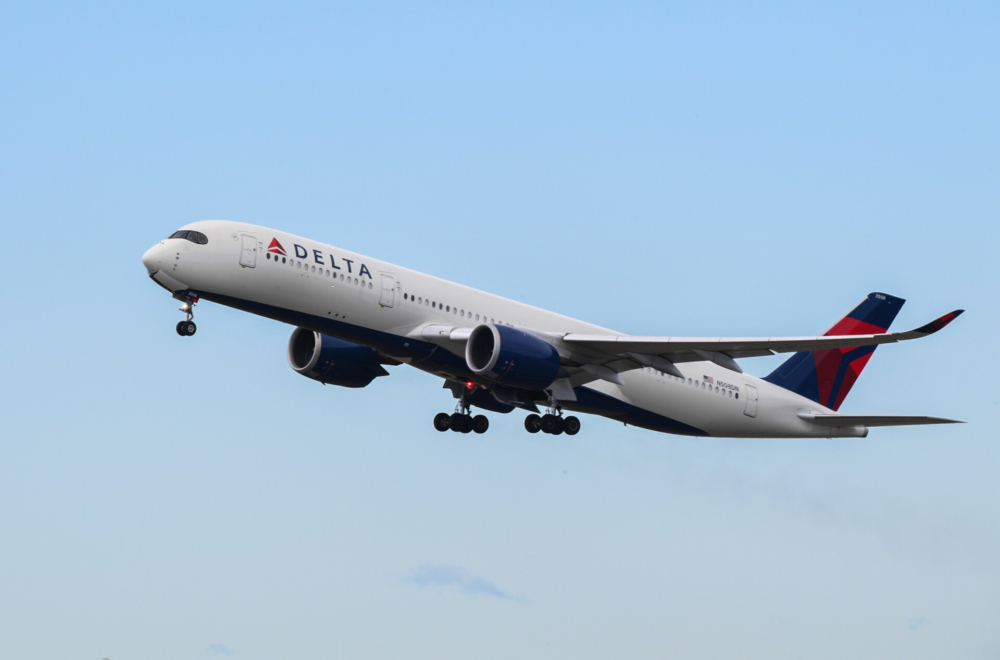Delta Air Lines has reported its financial results for the third quarter of 2021. The carrier notched a $1.2 billion profit, including government support. However, even more exciting, excluding government support, the airline turned a profit of $216 million – its first profit excluding government support since the crisis began in early 2020. Separately, the airline also announced it would be acquiring two more Airbus A350 aircraft.

Delta’s third-quarter results
Delta Air Lines saw a strong rebound in the third quarter of 2021. With people stepping back on planes and booking flights, the airline swung back to profitability. In the second quarter, Delta also reported a net profit. However, that profit was driven by government support. While the higher 16.7% margin for this quarter was driven by government support, the adjusted profit, excluding government support, was a 2.6% margin – a somewhat slim profit.
Nevertheless, the airline saw plenty of positive financial trends. Adjusted operating revenue was $8.3 billion, a $1.9 billion (or 30%) improvement compared to the second quarter of 2020. Compared to the third quarter of 2019, operating revenue was 66% restored. Total passenger revenue was 63% recovered, primarily due to the delay in higher-yield business customers returning to the skies.

CEO Ed Bastian stated the following on the results:
“Our September quarter marked an important milestone in our recovery, with our first quarterly profit since the start of the pandemic. Our revenues reached two-thirds of 2019 levels thanks to the industry-leading operational performance our people delivered through a busy summer, once again showing why they are the best in the business. While demand continues to improve, the recent rise in fuel prices will pressure our ability to remain profitable for the December quarter. As the recovery progresses, I am confident in our path to sustained profitability as we continue to provide best-in-class service to our customers, strengthen preference for our brand, while creating a simpler, more efficient airline.”
Strong results in various segments
Domestic and Latin America and the Caribbean are the strongest parts of Delta’s network for now. In the domestic market, passenger revenues were 72% restored in the quarter, compared to the third quarter of 2019. International passenger revenue recovered to 42% of third-quarter 2019 levels.
Latin America and the Caribbean lead the way with a whopping 84% restoration in passenger revenues of the international recovery. Transatlantic revenues were only 35% restored, but up 20 points quarter-over-quarter as more borders opened up, Delta launched new routes, and travelers booked flights. Transpacific flights remain weak, with a revenue return of only 20% as borders remain tightly shut in key geographies.

Premium cabins were a bright spot in Delta’s results, with domestic and short-haul Latin America revenue outperforming and outpacing economy revenues by approximately 10 points. This is a trend Delta has seen throughout the crisis. Relative to the third quarter of 2019, Delta saw an increase in paid premium cabin load factors, which means more people now in these geographies paid outright for a premium cabin seat, whether it be extra-legroom economy or first/business class, than in 2019.
Business travel is coming back. In July, corporate volumes improved, but the airline noted it slowed in September, with only 40% of corporate volumes recovered in the quarter. The airline blamed it on the unfortunately named delta variant. Nevertheless, Delta saw an improvement in corporate volumes in late September and into early October as case counts and hospitalizations have trended downward. This 40% recovery is a ten-point sequential improvement from the second quarter.
Looking ahead, Delta Air Lines expects an 80% restoration of capacity in the fourth quarter compared to the same period in 2019. This is on revenue recovered in the low 70s (a decline of roughly 25-30% of 2019 levels).
Adding two more Airbus A350s
Delta further announced an incremental acquisition of two more used Airbus A350-900 aircraft. These jets are planned for delivery in the fourth quarter and augment the 29 Boeing 737-900ERs and seven Airbus A350-900s it picked up from the used market in July.

Delta viewed this as an opportunistic acquisition of gently used airframes that will further the carrier’s fleet simplification and rebuilding strategy. Delta retired 18 of its Boeing 777s, and now the Airbus A350-900 will be an important aircraft to backfill those losses, restore routes only the 777 could operate, and move Delta into a more efficient future with its fleet.
from Simple Flying https://ift.tt/3AAFP12
via IFTTT
Comments
Post a Comment